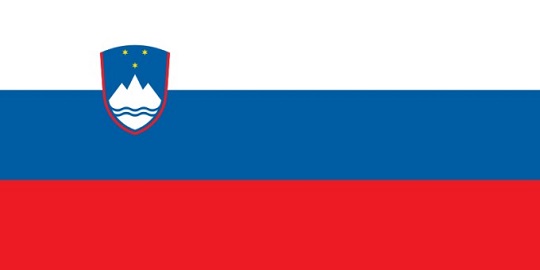Slovenia

| Extent of IFRS application | Status | Additional Information |
|---|---|---|
| IFRS Accounting Standards are required for domestic public companies | All domestic companies whose securities trade in a regulated market are required to use IFRS Standards as adopted by the EU in their consolidated financial statements. | |
| IFRS Accounting Standards are permitted but not required for domestic public companies | ||
| IFRS Accounting Standards are required or permitted for listings by foreign companies | IFRS Standards as adopted by the EU are required in their consolidated financial statements except that a foreign company whose home jurisdiction’s standards are deemed by the EU to be equivalent to IFRS Standards may use its home standards. | |
| The IFRS for SMEs Accounting Standard is required or permitted | No. | |
| The IFRS for SMEs Accounting Standard is under consideration | No. |
Profile last updated: 16 June 2016
RELEVANT JURISDICTIONAL AUTHORITY
SIR: www.si-revizija.si/
Ministry of Economic Development and Technology: www.mgrt.gov.si/en/
COMMITMENT TO GLOBAL FINANCIAL REPORTING STANDARDS
Yes.
Refer to the IAS Regulation adopted by the European Union in 2002.
Yes.
Refer to the IAS Regulation adopted by the European Union in 2002.
As a member state of the European Union, Slovenia is subject to the IAS Regulation adopted by the European Union in 2002.
The EU IAS Regulation requires application of IFRS Standards as adopted by the EU for the consolidated financial statements of European companies whose securities trade in a regulated securities market starting in 2005. The EU IAS Regulation gives member states the option to require or permit IFRS Standards as adopted by the EU in separate company financial statements (statutory accounts) and/or in the financial statements of companies whose securities do not trade on a regulated securities market. See the Profile for the European Union for more detailed information about the EU IAS Regulation.
There is one regulated market in Slovenia – the Ljubljana Stock Exchange Official Market.
Slovenia used the option under the IAS Regulation as follows:
Companies whose securities trade in a regulated market
- Permit IFRS Standards as adopted by the EU for the separate financial statements of companies whose securities trade in a regulated market.
Companies whose securities do not trade in a regulated market
- Require IFRS Standards as adopted by the EU in both the consolidated financial statements and separate financial statements of banks and insurance companies whose securities do not trade in a regulated market.
- Permit IFRS Standards as adopted by the EU in the consolidated financial statements of companies other than banks and insurance companies whose securities do not trade in a regulated market. Once such a company has adopted IFRS as adopted by the EU, it must continue to use IFRS Standards as adopted by the EU for at least five years.
- Permit IFRS Standards as adopted by the EU in the separate financial statements of companies other than banks whose securities do not trade in a regulated market.
EXTENT OF IFRS APPLICATION
For DOMESTIC companies whose debt or equity securities trade in a public market in the jurisdiction:
IFRS Standards as adopted by the EU are:
- Required in both the consolidated financial statements and separate financial statements of banks and insurance companies whose securities do not trade in a regulated market.
- Permitted in the consolidated financial statements of companies other than banks and insurance companies whose securities do not trade in a regulated market. Once such a company has adopted IFRS Standards as adopted by the EU, it must continue to use IFRS Standards as adopted by the EU for at least five years.
- Permitted in the separate financial statements of companies other than banks whose securities do not trade in a regulated market.
For FOREIGN companies whose debt or equity securities trade in a public market in the jurisdiction:
Required for some and permitted for others. Foreign companies whose securities trade in a regulated market in Slovenia (and generally in the EU) are required to report under IFRS Standards as adopted by the EU for their consolidated financial statements unless the European Commission has deemed their local accounting standards to be equivalent to IFRS Standards, in which case they may use their local standards.
This is laid out on the ‘Financial Reporting’ page of the European Commission’s website.
IFRS ENDORSEMENT
TRANSLATION OF IFRS ACCOUNTING STANDARDS
Yes.
The European Union has 24 official and working languages. They are: Bulgarian, Croatian, Czech, Danish, Dutch, English, Estonian, Finnish, French, German, Greek, Hungarian, Irish, Italian, Latvian, Lithuanian, Maltese, Polish, Portuguese, Romanian, Slovak, Slovene, Spanish and Swedish. Before they are published in the Official Journal of the European Union, and therefore become binding under EU law, individual IFRS Standards must be translated into all of those languages (other than English and Irish).
Pursuant to a copyright waiver agreement with the Directorate-General for Translation of the European Commission, the Commission takes care of the translation into the official languages according to their own translation process. The translation covers only the standards and mandatory guidance, which is then published in the Official Journal of the European Union.
In addition, some countries (usually the standard setter or institute) have a translation contract with the IFRS Foundation to produce an ‘official translation’ for publication of a bound volume of IFRS Standards (usually the ‘Red Book’) and publication, in some cases, of individual standards and exposure drafts.




